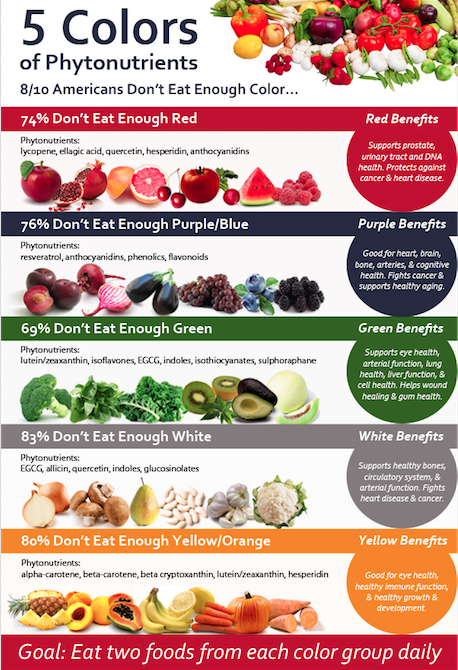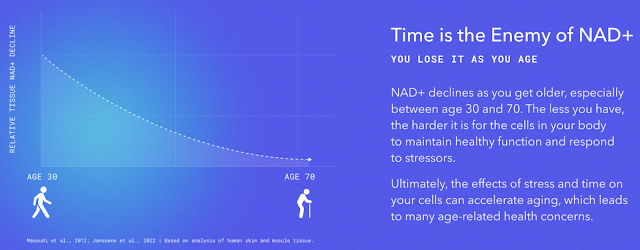Google attempts to protect users from sketchy stem cell clinics
MOUNTAIN VIEW - Transplanted stem cells can be as lifesaving as donated organs, but the Food and Drug Administration in September warned consumers that some stem cell clinics only pretend to be in the business of miraculous recoveries.

Now, Google is attempting to protect its users after years of showing ads for questionable stem cell treatments. The company stated that it will stop allowing "bad actors" to post Google ads that "take advantage of individuals by offering untested, deceptive treatments." Enforcement of the new policy started at the end of October, said Google spokesperson Alex Krasov. That change, while helpful, is unlikely to shutter clinics that cloak themselves in a façade of reputable science in order to peddle questionable stem cell treatments.
Different types of stem cell treatments are at varying stages of development. Transplants of bone-marrow stem cells are well-established treatments for a number of cancers. But the identification of other types of stem cells has allowed researchers to develop new therapies that are just beginning to enter clinical testing. Unfortunately, many stem cell clinics have latched on to the hype and are offering unapproved treatments for which there is no experimental evidence.
Such stem cell clinics "want your money, so they're almost willing to take all comers"—a red flag according to bioethics expert Art Caplan, who is the founding head of the Division of Medical Ethics in New York University's School of Medicine. He calls these clinics "sketchy," saying that their profit-driven motives have led to deceptive practices, including the advertisements on Google.
In the last 15 years, more than $20 billion has been invested in the stem cell industry. The growth of unapproved therapies led the FDA to confront opportunists who were subverting the government approval process by advertising untested treatments. Patients who have been treated by clinics peddling illegal treatments have suffered from tumors, infections, and death.
Those clinics do a chunk of their recruiting by advertising on Google, which reported a rise in ads promoting these bogus cures. (Google has not disclosed the exact numbers of ads or number of users who clicked on them.) Google said these unregulated trials targeted undiscerning users on its platforms.
Policing this can be complicated, however, as legitimate clinical trials of stem cell therapies also advertise in order to attract volunteers.
Advertisements by unregulated clinics differ greatly from recruitment efforts by legitimate clinical trials, Prof. Caplan said, which tend to be located in medical and academic centers and are generally funded by government agencies or universities. Unlike unregulated clinics, these legitimate trials selectively admit people, as the studies are limited by specific requirements. Standalone clinics tend to accept anyone who walks in the door, Caplan said.
Finding out whether a treatment is part of a clinical trial can be a challenge, especially since the government's clinical trial database doesn't provide patients with an easy way to learn about potential new treatments. That's why patient advocacy groups often help people identify legitimate and appropriate clinical trials. The National Multiple Sclerosis Society, for example, exists in part to help connect qualified patients with vetted clinical trials, said Sara Bernstein, the organization's manager of research information. Such groups also explain relevant clinical trials in terms that patients can understand, she added.
In matching clinical studies with the best patients for their specific research goals, studies can obtain the data that Bernstein said can lead to FDA approval. To get that approval, clinical trials have to pass through four phases, attracting hundreds or sometimes even thousands of patients, before they become legitimate by FDA standards.
But "legitimate" has a different meaning for Google. According to its statement, "We'll continue to allow advertising for research happening in this space for clinical trials and the ability for clinicians to promote their research findings to the public." This suggests Google might remain in the tricky position of making its own decisions about what's legitimate and illegitimate when it comes to advertisements for stem cell treatments.
For patients seeking clinical trials without trying to evaluate ads, Bernstein recommends finding a patient advocacy group and subscribing to its email list to get targeted information on clinical trials. She said the National Multiple Sclerosis Society prefers email, because it allows the group to easily sort its subscriber lists to match a study's participation requirements. Patient advocacy groups provide this service "to encourage people to participate in research," Bernstein said. Supporting clinical trials is important to the group, she said, because "this is the way forward, especially for people whose treatments aren't working for them."
If you don't have an advocacy group to match you with a trial, and you do run across a Google ad for a trial, Caplan said there's one way to confirm it's legitimate. "Probably the biggest distinction is the legitimate sites will say, 'Ask your doctor to contact us,'" he said. "The sketchy ones don't do that."
SOURCE: https://arstechnica.com/science/2019/11/google-attempts-to-protect-users-from-sketchy-stem-cell-clinics/

Now, Google is attempting to protect its users after years of showing ads for questionable stem cell treatments. The company stated that it will stop allowing "bad actors" to post Google ads that "take advantage of individuals by offering untested, deceptive treatments." Enforcement of the new policy started at the end of October, said Google spokesperson Alex Krasov. That change, while helpful, is unlikely to shutter clinics that cloak themselves in a façade of reputable science in order to peddle questionable stem cell treatments.
Different types of stem cell treatments are at varying stages of development. Transplants of bone-marrow stem cells are well-established treatments for a number of cancers. But the identification of other types of stem cells has allowed researchers to develop new therapies that are just beginning to enter clinical testing. Unfortunately, many stem cell clinics have latched on to the hype and are offering unapproved treatments for which there is no experimental evidence.
Such stem cell clinics "want your money, so they're almost willing to take all comers"—a red flag according to bioethics expert Art Caplan, who is the founding head of the Division of Medical Ethics in New York University's School of Medicine. He calls these clinics "sketchy," saying that their profit-driven motives have led to deceptive practices, including the advertisements on Google.
In the last 15 years, more than $20 billion has been invested in the stem cell industry. The growth of unapproved therapies led the FDA to confront opportunists who were subverting the government approval process by advertising untested treatments. Patients who have been treated by clinics peddling illegal treatments have suffered from tumors, infections, and death.
Those clinics do a chunk of their recruiting by advertising on Google, which reported a rise in ads promoting these bogus cures. (Google has not disclosed the exact numbers of ads or number of users who clicked on them.) Google said these unregulated trials targeted undiscerning users on its platforms.
Policing this can be complicated, however, as legitimate clinical trials of stem cell therapies also advertise in order to attract volunteers.
Advertisements by unregulated clinics differ greatly from recruitment efforts by legitimate clinical trials, Prof. Caplan said, which tend to be located in medical and academic centers and are generally funded by government agencies or universities. Unlike unregulated clinics, these legitimate trials selectively admit people, as the studies are limited by specific requirements. Standalone clinics tend to accept anyone who walks in the door, Caplan said.
Finding out whether a treatment is part of a clinical trial can be a challenge, especially since the government's clinical trial database doesn't provide patients with an easy way to learn about potential new treatments. That's why patient advocacy groups often help people identify legitimate and appropriate clinical trials. The National Multiple Sclerosis Society, for example, exists in part to help connect qualified patients with vetted clinical trials, said Sara Bernstein, the organization's manager of research information. Such groups also explain relevant clinical trials in terms that patients can understand, she added.
In matching clinical studies with the best patients for their specific research goals, studies can obtain the data that Bernstein said can lead to FDA approval. To get that approval, clinical trials have to pass through four phases, attracting hundreds or sometimes even thousands of patients, before they become legitimate by FDA standards.
But "legitimate" has a different meaning for Google. According to its statement, "We'll continue to allow advertising for research happening in this space for clinical trials and the ability for clinicians to promote their research findings to the public." This suggests Google might remain in the tricky position of making its own decisions about what's legitimate and illegitimate when it comes to advertisements for stem cell treatments.
For patients seeking clinical trials without trying to evaluate ads, Bernstein recommends finding a patient advocacy group and subscribing to its email list to get targeted information on clinical trials. She said the National Multiple Sclerosis Society prefers email, because it allows the group to easily sort its subscriber lists to match a study's participation requirements. Patient advocacy groups provide this service "to encourage people to participate in research," Bernstein said. Supporting clinical trials is important to the group, she said, because "this is the way forward, especially for people whose treatments aren't working for them."
If you don't have an advocacy group to match you with a trial, and you do run across a Google ad for a trial, Caplan said there's one way to confirm it's legitimate. "Probably the biggest distinction is the legitimate sites will say, 'Ask your doctor to contact us,'" he said. "The sketchy ones don't do that."
SOURCE: https://arstechnica.com/science/2019/11/google-attempts-to-protect-users-from-sketchy-stem-cell-clinics/










Comments